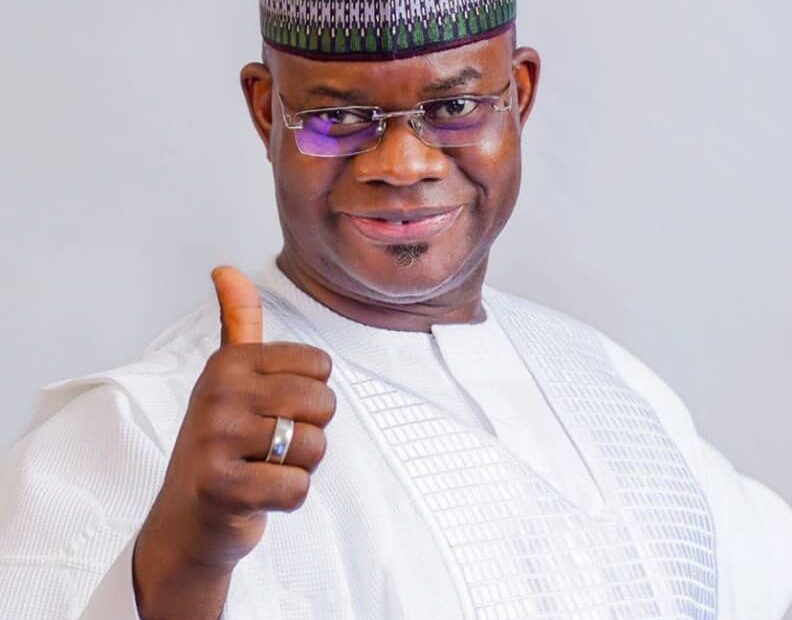Abdul Mohammed Lawal.
The political landscape of Nigeria is often characterized by intense power struggles, especially regarding succession planning in various states. As incumbents near the end of their tenures, the race to install a suitable successor becomes a dramatic and complex affair, involving strategic maneuvering, alliance formation, and sometimes outright confrontation. A notable example is Kogi State, which has had its own unique succession story.
Across the country, incumbent governors often seek to preserve their legacies by selecting loyal successors willing to continue their policies. This desire for loyalty can lead to sidelining potentially more popular candidates with differing visions for the state. Only two governors in Kogi State—His Excellency, Alhaji Ibrahim Idris, and His Excellency, Alhaji Yahaya Bello—have successfully completed two terms in office, each with remarkable success stories.
Nigeria’s diverse ethnic composition necessitates a delicate balance in power-sharing. Kogi State, with its three major ethnic groups, exemplifies this dynamic. The informal zoning arrangement, where power rotates among different ethnic or regional groups, has led to debates and negotiations within the state’s three senatorial districts. The eastern region initially resisted this idea until it naturally took hold in 2016, while the western and central regions had their hopes and engaged in ongoing succession struggles to uphold these agreements.
Kogi State’s political landscape has been dominated by two parties: the All Progressives Congress (APC) since 2016 and the People’s Democratic Party (PDP) from 2003 to 2016. These parties play significant roles in succession politics, often outweighing ethnic considerations. Internal party dynamics, including primaries and endorsements, are crucial battlegrounds where succession struggles unfold. Party loyalty and the ability to mobilize party machinery are decisive factors.
The succession power play during Alhaji Ibrahim Idris’s tenure in 2011 involved two government-endorsed PDP primaries, resulting in the selection of Distinguished Senator Jibrin Isah Echocho and later His Excellency, Capt. Idris Ichalla Wada. Allegations of disloyalty against Echocho led to a second primary, producing Wada as the candidate. It was rumored that he selectively answered calls from his purported benefactor, and news of his daughter’s marriage to the governor’s former ally-turned-rival was leaked by insiders within the government. Thanks to His Excellency Alhaji Yahaya Bello, Alhaji Jibrin Isah Echocho is now a Senator of the Federal Republic of Nigeria, and his son-in-law holds the position of Minister representing Kogi State.
The New Direction Administration of His Excellency, Alhaji Yahaya Bello witnessed a more conservative approach, with the APC successfully nominating His Excellency, Alhaji Ahmed Usman Ododo. The battle then shifted to ethnicity and the influence of national political figures, whose endorsements can make or break a candidate’s chances. This scenario mirrors the 2003 PDP dynamics that brought Alhaji Ibrahim Idris to power and depicts His Excellency, Alhaji Yahaya Bello’s efforts to prevent a similar outcome in the 2023 Kogi gubernatorial race.
The process of selecting a successor can lead to intense conflicts within political parties. Rival factions may emerge, each supporting different candidates, leading to internal strife and weakening party cohesion. Under His Excellency, Alhaji Yahaya Bello’s leadership, the APC managed these challenges skillfully. However, disputes over candidate legitimacy and primary conduct often result in legal battles, delaying the electoral process and undermining public confidence in democracy. During this period, certain progressive factions either defected to align with the opposition or opted to bolster their own land armies in the opposing direction.
Lagos State, Nigeria’s commercial capital, has also experienced significant succession drama. In the 2019 elections, incumbent Akinwunmi Ambode faced challenges within the APC and lost the primary to Babajide Sanwo-Olu, the preferred candidate of political heavyweight Bola Tinubu. Tinubu’s comment that “Ambode was a good governor, but not a good partyman” highlights the influence of powerful individuals in determining successors, a situation mirrored in Kogi’s 2023 APC dynamics. We extend our gratitude to the All Progressives Congress (APC) for bestowing upon the people of Kogi State the leadership of His Excellency, Alhaji Yahaya Bello.
Succession struggles in Nigerian states reflect the intricate interplay of political loyalty, ethnic considerations, economic interests, and external influences. These battles are not just about who takes over power but also about maintaining control over the state’s political and economic future. As Nigeria continues to evolve politically, these succession dynamics will remain critical to its democratic process, shaping governance and development.
There is no denial that this is a pivotal time for Kogi State. As elections have concluded, it is essential to support His Excellency, Alhaji Ahmed Usman Ododo, and his policies. Building a better Kogi State should now be priority.
